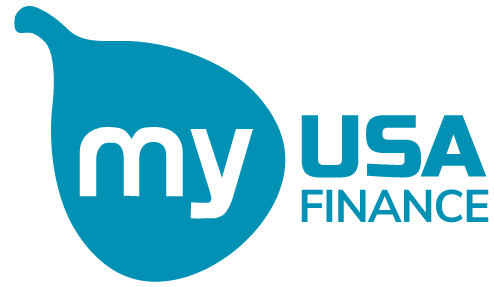Are you dreaming of taking a vacation, but worried about the cost? You are not alone; 60% of Americans say they took at least a week of vacation last year.
Planning a vacation can be exciting, but financing it can sometimes be challenging. The good news is that you have the option of vacation financing, allowing you to plan and save money for that dream trip you’ve always wanted.
In this article will explore various vacation financing options and smart strategies to help you fund your dream getaway without draining your bank account.
1. Create a Budget for Your Vacation
Assess Your Financial Situation
Before you dive into planning your dream vacation, take a close look at your current financial situation. Analyze your income, expenses, and savings to understand how much you can allocate towards your trip without jeopardizing your finances.
Set a Realistic Budget
Once you have a clear understanding of your finances, set a realistic budget for your vacation. Include all the essential expenses such as transportation, accommodation, food, activities, and souvenirs. Be mindful of not overspending and aim to stick to your budget throughout the trip.
2. Start a Vacation Fund
Open a Dedicated Savings Account
Consider opening a separate savings account exclusively for your vacation funds. This will help you track your progress and resist the temptation of dipping into these funds for other purposes.
Automate Your Savings
To ensure consistent contributions to your vacation fund, set up an automatic transfer from your primary bank account to your dedicated vacation savings account. Even small, regular contributions can add up significantly over time.
3. Travel Rewards and Credit Card Points
Research Travel Rewards Programs
Explore various travel rewards programs airlines, hotels, and credit card companies offer. These programs can earn you points, miles, or cash back on your travel expenses, a great way to save money on vacation.
Responsible Credit Card Usage
If you use credit cards for your travel expenses, do so responsibly. Choose cards with rewards and benefits that align with your vacation plans. Pay off your credit card balance on time to avoid interest charges.
4. Personal Loans For Vacation
Vacation Loans
Vacation loans are unsecured personal loans you can use to pay for travel expenses, such as flights, hotels, rental cars, meals, or other trip-related items.
Loans like these do not require collateral, and you repay them in fixed installments, which means your payments won’t change throughout the term. Vacation loans are available from online lenders, banks, and credit unions.
Vacation Loan Rates
The annual percentage rate (APR) on personal loans ranges from about 6% to 36%, and some lenders may decide the amount and rate based on what you need the loan for.
Your interest rate is largely determined by your credit score and how much of your income goes to other debts, also known as your debt-to-income ratio. Low interest vacation loans are more likely to be available to those with good credit scores and low debt-to-income ratios. Loans with lower rates are less expensive.
Pros and Cons of Vacation Loans
Weigh the pros and cons of travel loans before deciding if they are the right choice for financing your trip.
Pros of vacation loans
- Low rates: Low rates are available to well-qualified borrowers, especially those with credit scores above 690.
- Get the money all at once: Rather than receiving funds gradually as you spend them, you receive them all at once with a personal loan. A fixed amount can make it easier to plan your vacation and stay within your budget.
- Fixed monthly payments: A personal loan has fixed monthly payments over a set period, making repayments easy to budget. Knowing when you’ll pay off the debt helps you stay focused on your payments.
Cons of vacation loans
- Debt: Besides other debts, a vacation loan could put you under financial stress. One missed payment can harm your credit score, plus you will incur a late fee.
- Repayment terms: A personal loan’s term can last as long as seven years, so you’ll still be paying it off long after you’ve returned home. Take time to consider how long it makes sense to pay for your travel.
5. Plan Your Activities Wisely
Research Free or Low-Cost Activities
Look for free or budget-friendly activities and attractions at your vacation destination. Many cities offer museums, parks, and cultural sites that can be explored without breaking the bank.
Prioritize Your Must-Do Activities
Make a list of must-do activities and prioritize them based on your budget. This will ensure you don’t miss out on the experiences that matter most to you.
6. Travel During Off-Peak Seasons
Off-Peak Travel Benefits
Traveling during off-peak seasons can result in significant cost savings on flights, accommodations, and activities. You’ll likely encounter fewer crowds, allowing for a more relaxed vacation experience.
Looking for a Vacation Loan?
Explore your options today!
Fulfilling your dream vacation doesn’t have to be an impossible feat. With careful planning, budgeting, and smart financing strategies, you can turn your dream getaway into a reality without straining your finances.
Remember to prioritize your spending, take advantage of rewards programs, and explore various financing options that suit your needs.
So, start planning, and let the countdown to your unforgettable vacation begin! My USA Finance makes it easy to find the right loan that fits your needs. So if you’re ready to finance your next vacation with a personal loan – Apply Today!
Frequently Asked Questions
If you have limited funds and want to vacation, you may want to consider a travel loan.Travel loans (or vacation loans) are unsecured personal loans.
A vacation loan is an unsecured personal loan that you can use to pay for travel expenses, such as flights, hotel stays, rental cars, meals, or other trip-related expenses.
In general, vacation loans are used to pay for travel expenses. Funds are provided by the lender, which are then repaid in equal monthly installments.
While using a credit card can be beneficial for earning rewards and points, it’s essential to use it responsibly and pay off the balance on time to avoid high-interest charges.











